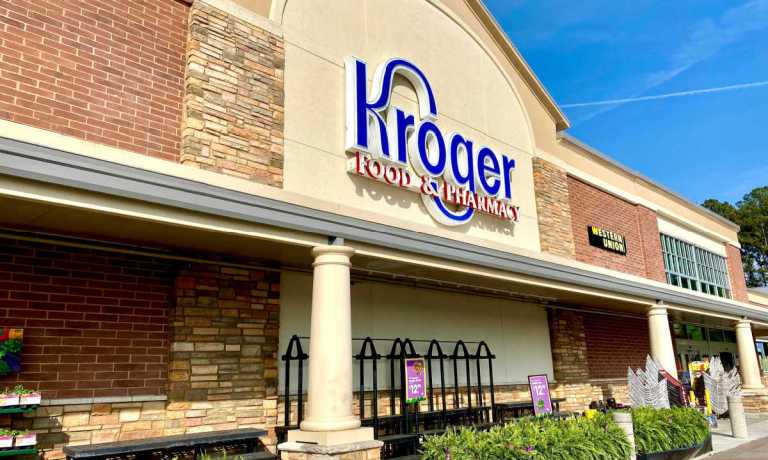Kroger Takes Short-Term Margin Hit on eCommerce to Drive Long-Term Growth

As Kroger continues to drive double-digit digital growth, the grocery giant is accepting a negative impact on profit margins for the time being, betting on its digital transformation to drive long-term loyalty and spending.
In the grocer’s third-quarter fiscal 2023 earnings report released Thursday (Nov. 30), the company reported an 11% year-over-year increase in digital sales, with delivery up by 20%. On a call with analysts, the company’s Chairman and CEO Rodney McMullen noted that these orders are costlier for Kroger than brick-and-mortar, but argued that by increasing digital engagement, the retailer may be able to boost customers’ spending in the long run.
“Currently, digital would not be as profitable as stores. We do believe over time, that will change,” McMullen said. “… If you just step back, … job one is [making] sure we don’t lose the customer. And what we find is, that customer, over time, will spend more with us when they’re engaged with us through pickup, delivery, and in store.”
He noted that the company has made “significant progress” lowering the cost of fulfilling pickup orders, and that the company’s so-called “sheds,” or automated fulfillment centers created in partnership with British grocery technology company Ocado, are also trending in the right direction.
“We continue to make progress, on our sheds to get them to where the profitability of the shed would be the same as the store,” McMullen said.
These comments come following the grocer’s decision earlier in the year to pause the expansion of these sheds — at least for a while.
Demand for grocery delivery is significant. PYMNTS Intelligence’s study, “12 Months of the ConnectedEconomy™: 33,000 Consumers on Digital’s Role in Their Everyday Lives,” which drew from surveys of tens of thousands of U.S. consumers, revealed that, as of a year ago, 40% of consumers reported that they had ordered groceries online for home delivery in the previous month.
Additionally, the PYMNTS Intelligence report “Tracking the Digital Payments Takeover: Catching the Coming eCommerce Wave,” created in collaboration with Amazon Web Services (AWS), which drew from an April survey of nearly 2,700 U.S. consumers, revealed that about one in three shoppers said they were very or extremely likely to increase their online grocery purchases in the next year.
In the quarter, Kroger not only boosted eCommerce sales but also digital engagement through its rewards program and special offers. According to a presentation shared with analysts, the grocer saw a 36% year-over-year rise in digital coupon downloads, boosted by the company’s personalization efforts. Through its own data, the company has information about 60 million households and a $10+ billion digital business; in combination with Albertsons, those figures rise to roughly 85 million and $12+ billion, respectively.
These kinds of offers can help keep consumers engaged amid times of financial challenges. The PYMNTS Intelligence study “Big Retail’s Innovation Mandate: Convenience and Personalization,” created in collaboration with ACI Worldwide, which drew from a survey of 300 major retailers in the U.S. and U.K., found that 74% of grocers think that consumers would be very or extremely likely to switch merchants if digital coupons and rewards were not provided to in-store customers.